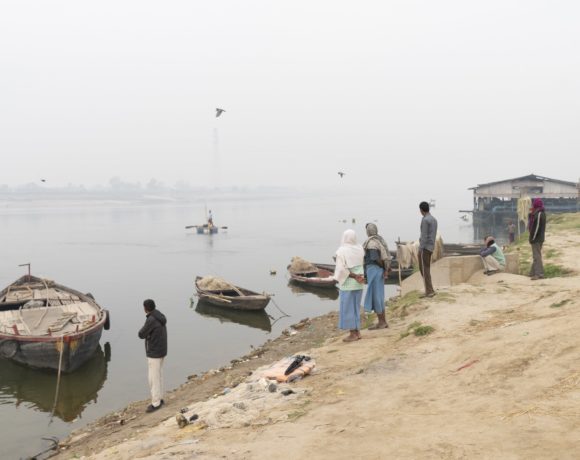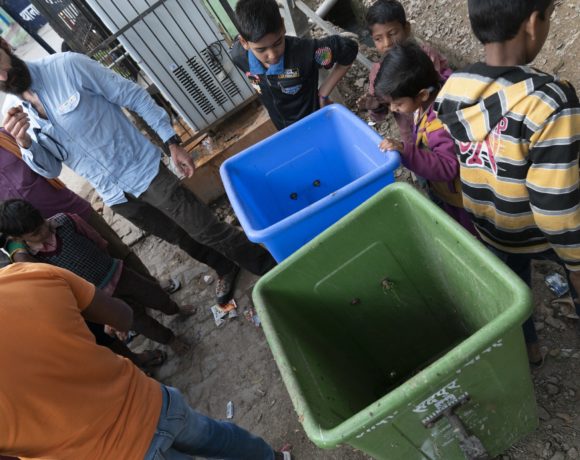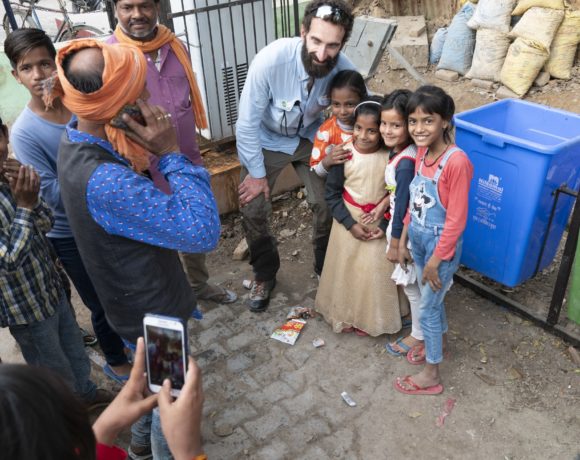Uttar Pradesh: first impressions about local pollution
LOGBOOK 6 #GANGES
After three days of navigation I am entering a less populated area of Uttar Pradesh, where villages are still built with straw and bricks. Here, between Varanasi and Ghazipur, the complexity of the pollution issue are clear to see and, as always, a symptom of something else.
For thousands of years the Ganges has been purifying the spirit of the Indian people and, for the same time, it has also been taking care of their waste. What I am beginning to understand is that the Ganges is not polluted by a lack of respect or inattention. In fact, the people call it Ganga ij – where ij is a sign of respect. No, the problem is a total lack of understanding.
In the days we spent building the raft, at two o’clock there was always a gentleman who offered us all some tea, sometimes in a paper cup, other times made of clay. When people finished drinking, the container was thrown to the ground.
I carefully observed these actions, repeated automatically, but never noticed the expression of a person thinking ‘someone will take care of it’. There was nothing on their faces – not the smallest sign of understanding the cause-and-effect connection.
In addition to this, reaching the village of Saidpur today, I can see that the dirtiest part of the river is not the water, but the banks. It is as if the Ganges has reached a point where, not being able to count on the help of the people, she has decided to defend herself by trying to contain the problem as best she can.
I am not stupid, I realise that people are engaged in challenges much more urgent for them than environmental awareness – especially in these rural areas. And yet I can only look on with a disillusioned smile at all the empty trash bins surrounded by rubbish on the ground.
It’s crazy to think that India is one of four nations with nuclear weapons, it has a satellite that circulates Mars and the brightest minds in the fields of science and engineering – and yet you reach Saidpur and understand that all of this is not enough to make people think about making use of the waste they dispose of as trash.
What do we have to do to save the Ganges and the 500 million inhabitants who depend upon it?
Tomorrow I meet an NGO (non-governmental organisation) and I hope this can help me to understand.



